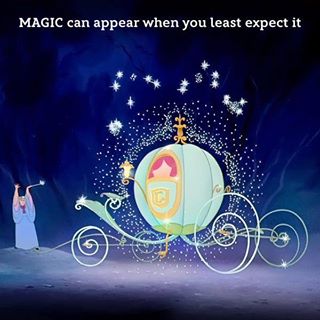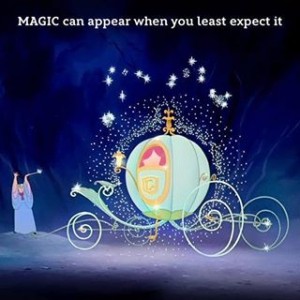
Bygone Days
Once upon a time, before technology enabled us to isolate ourselves from each other, neighbors gathered together or talked over the fence sharing their stories. The narratives included family issues, personal problems, joy-filled events and at times, necessitated venting frustrations. This enabled individuals to defer any emotional toxic buildup that might lead to misbehavior, outbursts or chaos. There was also the barbershop, local pub and sitting around the pot belly stove at the corner goods store. The therapist, psychologist or psychiatrist as well as psychotropic drugs for depression, anxiety or mental distress were unnecessary in a world that publicized its dirty laundry as a way of life.
There is nothing more enthralling than a good storyteller. The senses come alive, the imagination explodes and the mind remembers more vividly. Today, novels, films, technology and little if any human contact have replaced the audible story. Indigenous cultures and ancient civilizations passed stories concerning tribal customs, events and individual escapades through word-of-mouth. This art form was characterized by embellishments of the teller but also kept strictly to a code of defining the facts. The technique of storytelling stimulates neurological brain development in unimaginable directions for recall, recitation, creativity and a litany of other listening skill sets. The art of storyteller is a magical experience.
Modern psychology recognizes that talking out loud assists us in listening and hearing our personal beliefs, our deeper inner truths as well as enabling us to understand the behavior and reasoning behind individual action or behavior. It is also a swift path towards self-healing. Recounting our story assists us in finding our personal direction. A person’s story is important for a variety of reasons. Our story is
1) The past, present and future imprinted on the psyche.
2) Our concepts, attitudes, thoughts, belief, truths, opinions, about the world and the way it works.
3) An explanation of our behaviors and actions.
4) The molding influence over what we have become.
When a person’s story is known, people are less inclined to harshly judge and more inclined to forgive and accept shortcomings, idiosyncrasies and imperfect character flaws.
Recounting Local Stories
Everyone has a story. During a holiday family debate over an engorging meal, the conversation escalated as to the exact time and date of Lindbergh’s flight across the Atlantic. In the middle of the argument, grandmother Guiliani said, “ You are all wrong. I remember the exact time.” As the focal point dramatically shifted to Nana, we all chimed in unison “How do you know?” She, at age 90, matter-of-factly proclaimed, “As I was coming to the US, he was flying so low he nearly hit the ship. The captain made an abrupt turn and I saw him in the cockpit.” Nana was asked why it took so long for her to tell this tale and she responded, “No one ever asked.” Oh, how much has been lost because we no longer communicate, respect and admire our elders!
The his-story of white males in combat, their heroic deeds and creative genius is less and less relevant or important to today’s youth and adults who are looking for a more realistic, diversified view of the past and revel in their own creativity or invention rather than someone else’s. Individual personal accounts about historical events are so much more titillating, captivating and inevitably leave one awestruck when the personal story is introduced into the mix of facts. During a recent Spiritual Cinema discussion, our hostess, Virginia, described her participation during the desegregation efforts in the South. This heroine demonstrated remarkable courage as a teen by befriending the sole black female student who was forcibly integrated into a public high school in her hometown. Unlike other locations and schools in the South, there was no media coverage nor National Guard stationed at the doorstep. A sole young black woman and her white female friend faced the unimaginable with courage, dignity and peaceful co-existence. True courage is facing adversity when no one is shining a spotlight. Yet, how many times have you encountered Virginia and never knew her remarkable story?
Our lives are so ‘full’ that there is little or no time spent on the very people with whom we socialize, share moments and events. Is it any wonder that everyone is in search of ‘ten minutes of fame’? We look but do not see. We hear but do not listen to the people we share time and space, this moment in the vastness of eternity.
Quality time with the owner of this publication, Jim Ward, is well worth the risk. He is one modest and remarkable man. He continuously supports the various ‘alternative’ modalities, lectures and conferences in the surrounding area, yet rarely speaks about his own life experiences. Ask him about his adventures across continents (NOT the USA) on a bike! This unassuming human being has a remarkable story to convey yet chooses to share the stories of others…sheer grace.
No one can ever be judged at face value because everyone has a story to tell. Their story defines their character, behavior, personality and beliefs. As a psychologist, the human-interest stories are remarkable both in and out of the office. When you think you’ve heard everything, there is another tale more remarkable around the corner. How about the story of a man whose parents lived on and administrated a mental institution located on an island. Imagine those childhood nightmares! The clients fighting over custodianship of the Leer jet instead of the welfare of the children. The individual who, as a child, was forced to bury the headless males of the village. The multitudes of men and women who have served in the armed forces suffering from PTS from WWI, WWII, Iran who generationally perpetuate the symptoms. These individuals are among us and suffer daily yet we know not who they are and judge outward behavior as if we know them intimately.
Finale
We are all an amalgamation of our personal story as well as those who have come before – our families, friends, community, nation, and globe. Knowing the bits and pieces help us to understand both those around us and ourselves. The most enlightening stories are of those whom you loathe or dislike the most! Isn’t it time to listen, really hear, everyone’s personal story to form a more accurate picture of who they really are, where they come from and where they are going? Doesn’t everyone rate ‘five minutes of fame’ from family, friends and neighbors? If Nana were alive today there would be so many questions to ask, so much information to learn, so many stories to tell.

